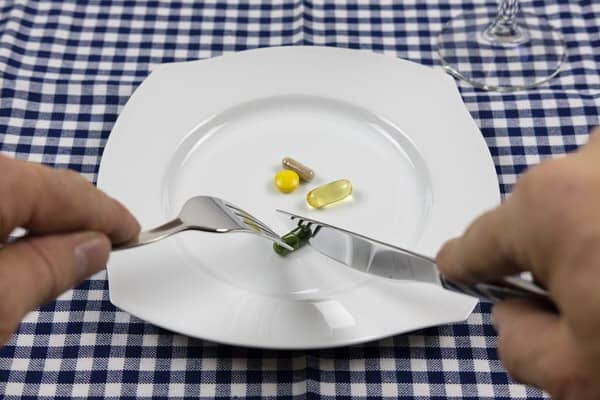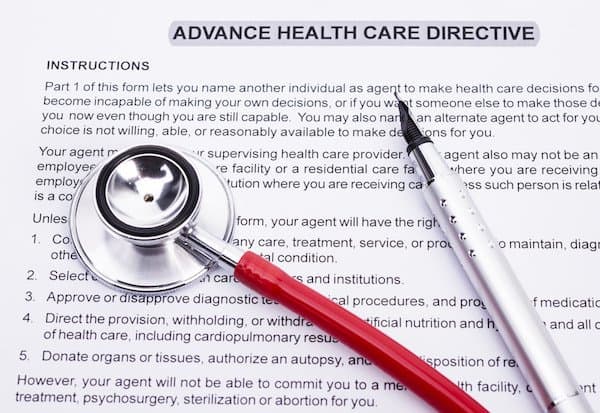Vitamin and mineral supplements are a huge business. The global market for dietary supplements is worth over $130 billion. But with all the vitamins out there, how do you choose? In particular, how do you know what vitamins to take after age 50?
Clearly, I need to improve my vitamin taking. Take the ones that really matter, and take them consistently. Just like I looked into what health screenings you need at midlife, I did some research on what vitamins to take after age 50. Here’s what I learned.

Why are supplement sales surging?
Experts predict that the global market for dietary supplements will grow by 10% per year to reach a value of $278 billion by 2024. United States sales of vitamin, mineral and herbal supplements (“VMHS”) currently account for 38% of the world market. A study by McKinsey & Co. identified several reasons for high growth in this market, including:
1. Aging population
Consumers 65 and older account for more than one-third of all VMHS purchases. This is just another example of how aging baby boomers are transforming consumer spending on health-related products.
2. Increased consumer interest in preventive healthcare
Magazines, websites, TV shows and other information sources reflect great health awareness. VMHS manufacturers tap into consumers’ preventive health motivations when crafting their marketing messages.
3. “Rise of the self-directed consumer”
People are taking health into their own hands. They are researching alternative therapies online and discussing health issues with their friends. There is a perception in the market that a “natural” supplement won’t hurt you, so why not give it a try?
Market fragmentation obscures reliable information
As the McKinsey report also points out, the VMHS market landscape is hard to interpret. The top five US supplement brands, for example, account for only 25% of the total market. Private label vitamins make up 10% of the total. Internet sales may be small, but they’re growing at a rapid pace. Sources of information and sales proliferate.
Multiple VMHS manufacturers provide “educational” (a.k.a marketing) materials that tout their own products. On top of this, there is a market trend toward brand messaging. It’s now less common to focus on individual ingredients, as this can lead to commoditization.
Bottom line: it’s getting harder than ever to know what vitamins to take after age 50.

Ritual: an example of questionnable information
Start-up supplement company Ritual has gone after the millenial market with clear capsules, beautiful packaging and gorgeous Instagram marketing. It offers Essential for Women and Essential Prenatal for $30/month, delivered automatically.
Founder Katerina Schneider told Forbes that she was inspired to create Ritual while pregnant and trying to eliminate toxins from her home. “After much research, I realized that the vitamin industry was simply opaque and full of pseudoscience and half-truths.” Thus Ritual offers extensive information about its ingredients on its website. And puts their vitamins in clear “anti-nausea” capsules.
But according to the New York Times, the company has sponsored posts on the website Well & Good, then used quotes from these sponsored posts as customer testimonials. Such a practice is misleading at best. As the NYT article maintains, it’s ironic that a company based on transparency offers up “tricky” ads. But this is a common practice in a confusing industry which lacks regulatory oversight.
Just the facts, ma’am
The internet provides tons of educational information on vitamins, minerals and herbal supplements. Social media are also the main marketing vehicles for many supplement companies. So it’s hard to tell the difference between information and marketing.
I adopted a minimalist approach in my research on what vitamins to take after age 50. I’ll name some top priorities and then highlight others you might consider. You’ll want to settle a manageable number of pills for you. Not to aim to take so many supplements that you get tired of doing it and stop taking them altogether.
Top vitamins to take after age 50
The best vitamins to take after age 50 might surprise you:
1. Vitamin D
Most sources recommend at least 600 IU/day. Bone density loss accelerates after menopause, and lots of us are drinking less milk as we grow older. Vitamin D helps you absorb calcium and phosphorus better to maintain bone density. It also promotes normal immune system function.
Your need for Vitamin D can vary according to your location and time of year. Spending a lot of time in the sun can help your body produce Vitamin D. It can also give you skin cancer!
2. Calcium
Women over 50 should take 1200 mg/day, split into 2 doses. Men need 1000 mg/day. Taken in conjunction with Vitamin D, calcium helps prevent brittle bones and osteoporosis. Even if you consume a fair amount of dietary calcium, many doctors recommend that you take a calcium supplement also as you age.
3. B-12
The recommended dosage is 2.4 mcg/day. Most B-12 supplements offer far higher dosages than this – I’m not sure why. T
You’ll find this vitamin in shellfish, meat and dairy products. But as many as one-third of people over 50 don’t absorb enough B-12 from the food they eat. Not absorbing enough B-12 can lead to balance and neurological problems. To be on the safe side, it’s easy enough to take a small dissolving tablet while you’re fixing your morning coffee.
4. Zinc
This one might surprise you. It did me. I first heard about the importance of zinc from my primary care physician’s nurse practitioner. Then I learned that taking zinc for healthy aging is actually a thing.
The recommended dose of zinc is 8 mg/day for women and 11 mg/day for men. Zinc helps your body produce lymphocytes, specialized white cells that protect you from infection. According to the National Health and Nutrition Examination Survey (NHANES), 35%-45% of adults over age 60 aren’t getting enough zinc from diet alone.
The Chicago Tribune cites two recent studies that show the importance of zinc in healthy aging. One, a yearlong study of 50 nursing home residents age 65+, found that people with inadequate zinc intake suffered twice as many bouts of pneumonia and took 50% more antibiotics than people with normal zinc status.
In another study of 50 independent seniors recruited from a senior center, researchers found that adults taking a daily zinc supplement experienced significantly fewer infections than those taking a placebo. This information is consistent with

More supplements to consider
In addition to the priority vitamins to take after age 50 listed above, there are others you might want to consider:
Multivitamins
A multivitamin is a convenient way to boost your intake of all the “essential” supplements. Especially if you eat a healthy diet, a good multi may be all you need to add.
Regarding “senior” vitamins: read the labels. Most senior multivitamins exclude iron, a mineral that older adults don’t usually need and which can be toxic at high levels. They also may increase the amount of Vitamins D and B-12 for reasons mentioned above. And although unproven, some senior multivitamins add herbal supplements to enhance brain health.
Harvard Medical School’s health blog recommends against daily multivitamins for healthy individuals. But you may have your own reasons to take them anyway. Here are WebMD’s suggestions for choosing a multivitamin.
Glucosamine
Often taken in combination with chondroitin and/or the compound MSM, glucosamine can help reduce the pain caused by inflammation, breakdown and eventual loss of cartilege (osteoarthritis). But, as the Mayo Clinic points out, results of scientific studies on its efficacy are mixed.
If you have joint pain, try taking this supplement to see if it makes a difference for you. Note that most sources tell you to take glucosamine for at least two months before you judge its effectiveness.
Probiotics
Probiotics are enjoying a heyday right now. They contain “good bacteria” that help your intestine break down and absorb the nutrients in your food. They can help correct digestive disorders and give you a healthy gut.
You might want to take probiotics from time to time to address stomach problems or ward off traveler’s diarrhea. Or to restore gut health after a round of antibiotics. But they’re expensive, so probably not worth taking on a daily basis.
Omega-3
Potential benefits of Omega-3 fatty acids include heart health, reduced anxiety and depression, eye health, reduction in age-related decline in mental function, and better ability to fight infammation and auto-immune disease.
The American Heart Association (AHA) recommends two servings of fish (preferably fatty fish like salmon) twice a week to make sure you’re getting enough Omega-3 fatty acids. But fish oil capsules are typically easy to swallow, at least. You might want to think about taking them. Especially if you don’t eat much fish.

The options are limitless
Supplement marketers would have you believe that the key to optimal health is balancing a good diet with the right blend of supplements. Just browse the aisles of your local grocery store, Target or Costco to get an idea of all the vitamins, minerals and herbal supplements you could be taking.
What’s more, as the baby boomers age, more and more marketers are recommending different vitamins to take after age 50 if you want to enjoy good health as you age.
This post by no means covers potential benefits of all supplements. Not even other popular ones like Turmeric, Coenzyme Q-10, SAMe, and St. John’s Wort. You may have other favorites – let me know in the comments below.
Your best approach is a healthy diet
The typical American diet contains too many processed foods, empty carbs and added sugars – all of which lead to obesity, inflammation and chronic disease. Eating fresh foods is still the best way to maximize nutrient absorption.
Harvard Medical School recommends eating nutrient-rich foods like these instead of taking vitamins. But since evidence on taking supplements is inconclusive, Harvard doesn’t rule out taking vitamins for everyone. Especially if you have a known vitamin deficiency, a
There are lots of resources to help you learn how to get your recommended daily vitamins and minerals from the food you eat. For example:
- “Foods you should eat instead of taking vitamins,” Time, March 2015
- “8 foods that beat a multivitamin,” Healthline, September 2015
- “Vitamins from A to Z,” AARP, January 2012

Conclusions
After reflecting on my research, I’ve developed a personal “vitamin philosophy.” Here’s what I’ve learned from my study of vitamins to take after age 50:
- Supplements can’t make up for eating poorly: I have to watch my diet
- My personal tolerance for pill-taking is low enough that I need to focus on taking only the most important supplements
In my case, these insights helped me settle on the following supplements:
- Vitamin D (a blood test showed I was low in it)
- Vitamin B-12
- Zinc (but I need more analysis to see if I get enough from the food I eat)
- Calcium (I probably get only half of what I need from food)
- Glucosamine/chondroitin (I’m currently doing a 90-day test of its effectiveness for me)
- Probiotics when I travel outside the US
Whatever you decide works best for you, try to discern true facts from marketing materials that parade as scientific information. The FDA provides little regulation in this burgeoning industry, and it has no chance to review a supplement at all until after a product comes to market.
Let me know in the comments if you’ve found any more resources or supplements that work for you. I’m always eager to learn more.
The goal, as always, is to live your best midlife!

Images via: Shutterstock, Pixabay



